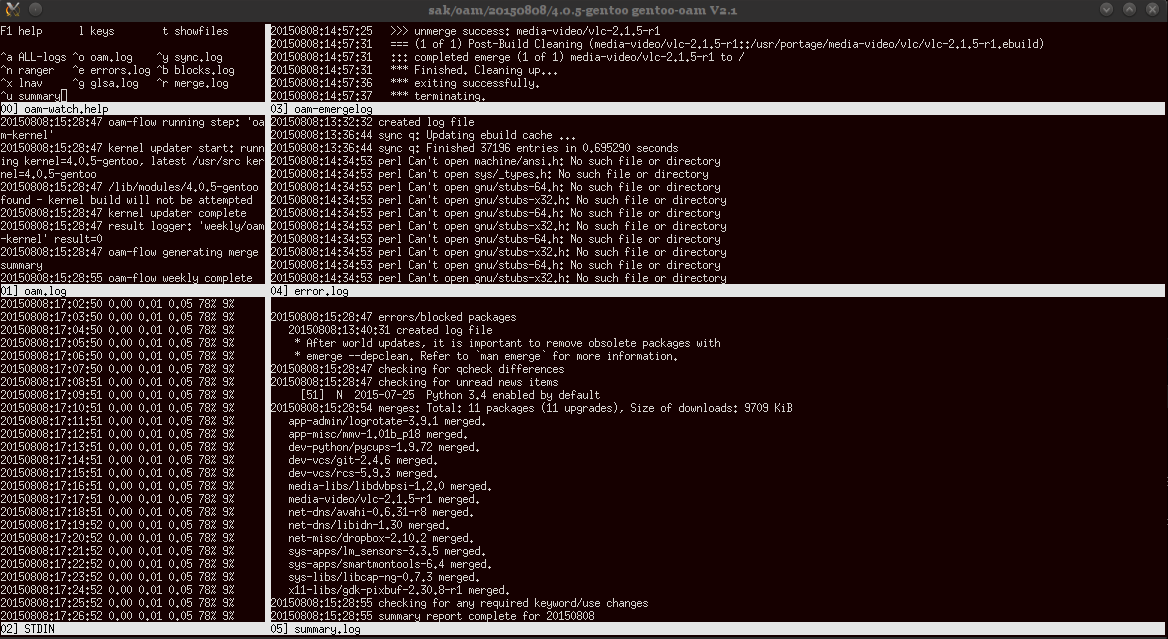Welcome to oam!¶
Operations/Admin/Management for gentoo¶
oam can reduce some of the repetition of normal regular maintainance tasks on a gentoo server.
The philosophy is to:
- automate tasks where it is safe to do so (e.g. merge blockers must be still resolved manually)
- log all actions and outputs (to aid postmortum analysis and followup manual intervention)
- provide a dashboard view of the progress of actions and results (to spot issues early)
- provide an editor preloaded with logs and portage config files (“vim -p” tabs)
- provide a quick glance summary of merges, blockers and new news items
See Changelog for changes in this version.
See Configuration for an overview of how to configure oam.
Workflows¶
Workflows are a sequence of tasks which are executed in sequence, stopping at the first failure. A task must complete successfully before the next task starts.
A task can consist of one or more invoke tasks.
For example the weekly workflow will run these tasks:
| Task Name | Commands |
|---|---|
sync |
|
glsa |
|
fetch |
|
update |
|
clean |
|
kernel |
|
qcheck |
|
Tasks can be added/skipped by configuration.
Manual Operations¶
You must still manually:
- resolve keyword or use flag blockers (see the blocks.log file for a starting point)
- run dispatch-conf when prompted
- remove obsolete packages manually with: emerge –depclean
Features¶
- simple workflow configuration on a per-server basis - new workflows can be added - built on invoke.
- dashboard display of currently running oam processes built on multitail.
- overall _summary_ of a merge (what merged succesfully, what didn’t, glsa’s, blockers, qcheck differences, unread news items… etc)
- logs all operations, errors, process output… etc
- multi-server support for starting and monitoring operations
- install via ebuild from the lmiphay overlay.
- pulls in many useful dependencies as part of the install (genlop, multitail, logrotate, ranger)
- bash shell completion support with app-shells/bash-completion.

Why should you not use oam?¶
- it is not a way to become familar with gentoo (learn emerge… etc first)
- you are happy with your current workflow (stick with your own scripts)
Contents: